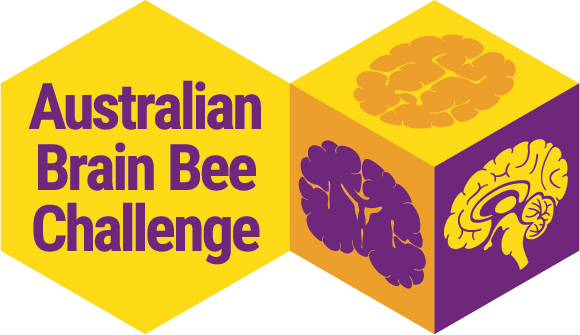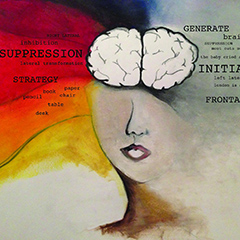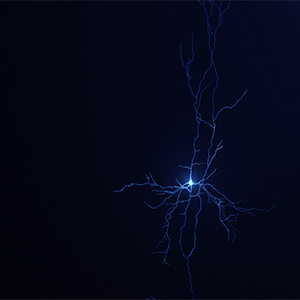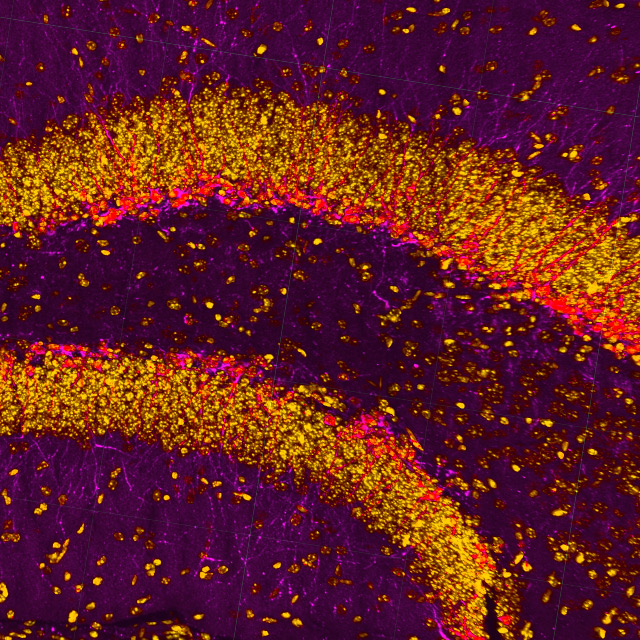You can help progress our research
You don't have to be a scientist to get involved with QBI. We offer a range of opportunities for everyday people to connect and progress our research and discoveries.
The foundation for all of our work is the funding we receive through a range of sources, including philanthropic donations from our generous supporters. There are many ways to give to QBI: directly, through planned giving, or holding fundraising events that entertain or challenge supporters as they dig deep to help us better understand the brain.
We also offer opportunities for students to learn directly from our inspiring researchers through lab placements, and for community members to tour our facilities and attend events. Finally, you can give one of the greatest gifts of all by volunteering for studies to advance treatments and diagnostics for brain diseases and disorders.
How you can support us
What your donations fund
Through your support you are helping QBI solve the major neurological health challenges facing our community today

World leading research

Brightest scientific minds

Solutions to global health challenges
Brain Research Endowment Fund
Find out more Donate to research
QBI’s Brain Research Endowment Fund supports scientists exploring the unknown, which will guide new research on finding cures for diseases or improving quality of life.
Community & school programs

Australian Brain Bee
The Australian Brain Bee Challenge (ABBC) is a competition for high school students in year 10 to learn about the brain and its functions, learn about neuroscience research, find out about careers in neuroscience and to dispel misconceptions about neurological and mental illnesses.
Participate in a research study
By being part of our human research studies you can make a valuable contribution to improving the lives of people living with brain disease and disorder.
Research in action
Stroke Portfolio Coordinators
Professor Gail Robinson
Professorial Research FellowQueensland Brain InstituteResearcher profile is public:1Supervisor:Researcher biography:Professor Gail Robinson holds a joint Queensland Brain Institute and the School of Psychology appointment. She has been a clinical neuropsychologist and researcher for ~25 years in Australia and in London (UK), where she spent 14 years at the dynamic and historic National Hospital of Neurology and Neurosurgery, Queen Square, London. In 2010, she transitioned from a clinical role to an academic position at The University of Queensland where was Director of the Clinical Neuropsychology Doctoral programme (2010-2018), taking up this lead role again in 2023. Her clinical research is focused on both theoretical questions about brain-behaviour relationships like the crucial mechanisms for the executive control of language, and clinical questions regarding cognitive assessment and management of various pathologies including neurodegenerative disorders, neurodevelopmental disorders, brain tumours and stroke. Professor Robinson has attracted internal and national funding; she Leads the Neuropsychology Core of a large-scale longitudinal and multidisciplinary NHMRC Dementia Team Research grant (Prospective Imaging Study of Ageing: Genes, Brain and Behaviour - PISA). She was the recipient of an ARC Discovery Early Career Researcher Award (DECRA) in 2012 and a NHMRC Boosting Dementia Research Leadership Fellowship in 2018 in which she has been focused on early neurocognitive diagnostic indicators for dementia.
Body: Professor Gail Robinson: Cognitive and clinical neuropsychology
Professor Gail Robinson: Cognitive and clinical neuropsychologyThe Robinson group's clinical research is focused on both theoretical questions about brain-behaviour relationships like the crucial mechanisms for the executive control of language, and clinical questions regarding cognitive assessment and management of various pathologies including neurodegenerative disorders, neurodevelopmental disorders, brain tumours and stroke.
Dr Matilde Balbi
Senior Research FellowQueensland Brain InstituteResearcher profile is public:1Supervisor:Researcher biography:Dr. Matilde Balbi is a neuroscientist within the Queensland Brain Institute, The University of Queensland. After receiving her bachelor and master's degree in Medical Biotechnology from the University of Naples,Italy, she spent a year working on traumatic brain injury at the Royal College of Surgeons in Ireland as a research assistant. Dr. Balbi earned her Ph.D. in Neuroscience at the Ludwig Maximilians University in Munich, Germany, working on the regulation of cerebral blood flow in health (ageing) and disease (small vessel disease and subarachnoid haemorrhage). She completed her postdoctoral training at the University of British Columbia in Vancouver, Canada, where she received support and fellowships from the Leducq Foundation, CPSR, MSFHR. She now leads her laboratory which aims to make an impact on the field of stroke recovery and other pathological conditions by combining imaging techniques, brain stimulation and individually tailored recovery paradigms in behaving rodents.
Body: Dr Matilde Balbi: Neuromodulation and homeostatic processes
Dr Matilde Balbi: Neuromodulation and homeostatic processesThe Balbi lab employs a multi-level approach, combining in vivo imaging techniques, brain stimulation—including but not exclusively optogenetics—and AI driven, individually tailored recovery paradigms in behaving rodents, to investigate intrinsic neuroprotective mechanisms of the brain under pathological conditions such as stroke.
Dr Tara Walker
Research Fellow & Group Leader, Senior Research FellowQueensland Brain InstituteResearcher profile is public:1Supervisor:Researcher biography:Dr Tara Walker is a Senior Research Associate at the Queensland Brain Institute. Dr Walker's group is investigating the mechanisms governing the lifelong production of neurons in the adult brain (adult neurogenesis). Tara studied Biotechnology as an undergraduate at the Queensland University of Technology (Brisbane, Australia), before carrying out her PhD in the field of Plant Biotechnology. In 2003 she made the transition to neuroscience, joining the Queensland Brain Institute (QBI) and the group of Professor Perry Bartlett. Here she became interested in the field of adult hippocampal neurogenesis, particularly in its activity-dependent regulation. In 2010, she joined the group of Professor Gerd Kempermann at the Center for Regenerative Therapies in Dresden, Germany, where she was awarded a Marie Curie International Incoming Fellowship in 2011. In July 2018 she returned to QBI to take up a position in the newly developed Centre for Restorative Neurosciences as a Senior Research Associate, where she will apply her knowledge of neural stem cell biology to stroke research.
Body:Research interest
We are interested in understanding the fundamental mechanisms governing the lifelong production of neurons in the adult brain. Adult neurogenesis, as this process is termed, decreases with age and this age-related decline in neurogenesis results in an associated decline in learning processes that are controlled by the hippocampus.
In previous work, together with Professor Perry Bartlett, we provided the first evidence of a true, but normally latent, hippocampal stem cell population and identified a mechanism through which the production of new neurons could be stimulated to replace or repair damaged cells in neurodegenerative diseases. More recently our focus has been on the systemic regulation of adult neurogenesis. We use the physical exercise model of increased neurogenesis to investigate cross-talk between the brain and the peripheral immune system, and in this context have investigated the interaction between T cells, mast cells and platelets and the neural stem cell niche.
The control of cell death provides a key mechanism in the regulation of adult hippocampal neurogenesis. We have demonstrated that ferroptosis, a recently identified, caspase-3-independent mode of programmed cell death, is a fundamental mechanism underlying the regulation of adult hippocampal neurogenesis. This form of cell death is mediated by the dietary trace element selenium. We have shown that selenium supplementation results in increased neural progenitor cell survival and neuronal-lineage differentiation in the hippocampus of young adult and aged mice. Ferroptotic cell death has been linked to the cell death that occurs in a number of neurodegenerative diseases and stroke. A key aspect of our future research program will be to investigate whether blocking ferroptotic cell death via dietary or environmental interventions can rescue the behavioural and cognitive decline observed in an animal model of stroke.
Bartlett: Neurogenic regulation of cognition
Group Leader
Emeritus Professor Perry Bartlett
Emeritus ProfessorQueensland Brain InstituteResearcher profile is public:0Supervisor:Body: Emeritus Professor Perry Bartlett: Neurogenic regulation of cognition
Emeritus Professor Perry Bartlett: Neurogenic regulation of cognitionProfessor Perry Bartlett’s laboratory is focussed on understanding the mechanisms that regulate the production and function of new neurons, generated from the resident population of stem/precursor cells in a region of the adult brain known as the hippocampus.
Research Members
Dr Daniel Blackmore
Animal Behaviour Facility ManagerQueensland Brain InstituteResearch FellowClem Jones Centre for Ageing Dementia ResearchResearcher profile is public:1Supervisor:Miss Alison Carlisle
PhD Student & Casual Histology AssistantQueensland Brain InstituteResearcher profile is public:0Supervisor:Students
Dr Alice Zhou
PhD StudentQueensland Brain InstituteResearcher profile is public:1Supervisor:Researcher biography:Dr Xiaoqing (Alice) Zhou obtained her master's degree in the State Key Lab of Cognitive Neuroscience and Learning, Beijing, China. She then obtained her PhD degree in 2019 under the supervision of Professor Perry Bartlett at Queensland Brain Institute, University of Queensland. She is currently a postdoctoral research fellow with Professor Elizabeth Coulson.
Tags:CognitionExerciseStem cells- Dementia symptoms usually develop gradually. Often the earliest signs are recognised in hindsight because they’re mistaken for signs of normal ageing.

